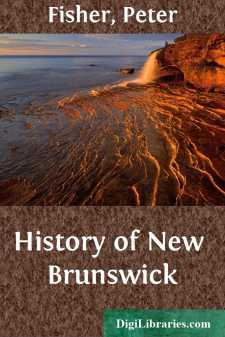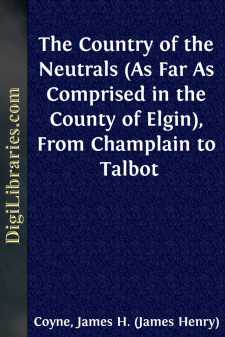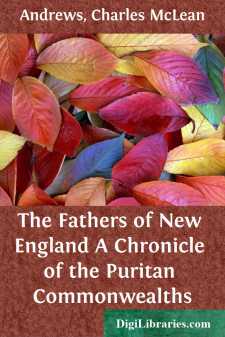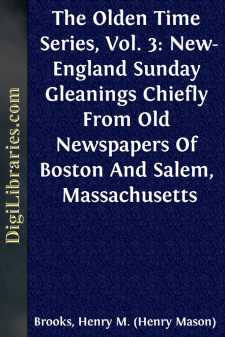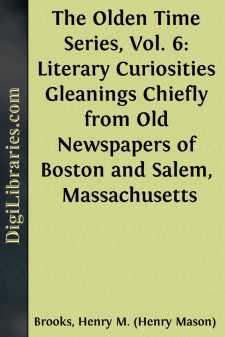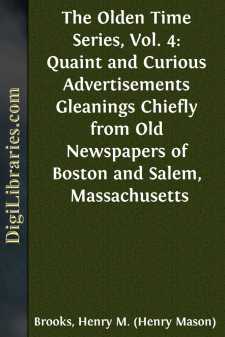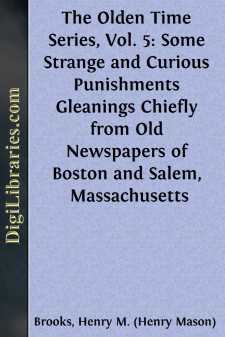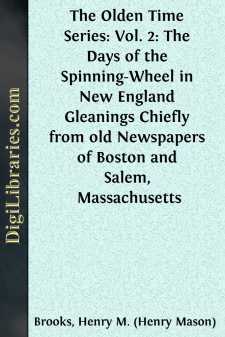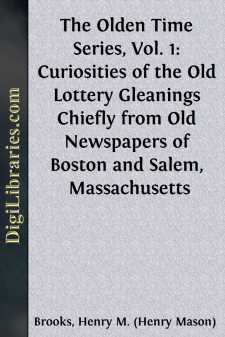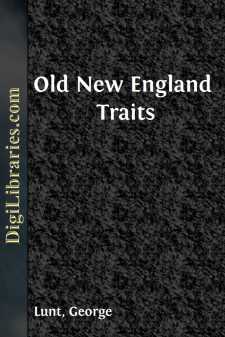History
- Africa 30
- Americas (North Central South West Indies) 50
- Ancient 68
- Asia 58
- Australia & New Zealand 8
- Canada 41
- Caribbean & West Indies 1
- Civilization 20
- Eastern Europe 12
- Europe 310
- Expeditions & Discoveries 60
- General 77
- Historical Geography 1
- Jewish 9
- Latin America 3
- Medieval 8
- Middle East 13
- Military 248
- Revolutionary 8
- Study & Teaching 5
- United States 353
- Western Europe 56
- World 13
History Books
Sort by:
by:
Peter Fisher
Having at different times collected what information I could obtain relating to the Province of New-Brunswick, I intended whenever I had a sufficient fund of correct materials, to publish them in such a shape as to diffuse a general knowledge of the Country, its productions, sources of wealth, &c. For this reason I had kept the different Counties, as well as the several subjects of which I intended...
more...
In that part of the township of Southwold included in the peninsula between Talbot Creek and the most westerly bend of Kettle Creek there were until a relatively recent date several Indian earthworks, which were well-known to the pioneers of the Talbot Settlement. What the tooth of time had spared for more than two centuries yielded however to the settler's plough and harrow, and but one or two of...
more...
THE COMING OF THE PILGRIMS The Pilgrims and Puritans, whose migration to the New World marks the beginning of permanent settlement in New England, were children of the same age as the enterprising and adventurous pioneers of England in Virginia, Bermuda, and the Caribbean. It was the age in which the foundations of the British Empire were being laid in the Western Continent. The "spacious times of...
more...
NEW-ENGLAND SUNDAY. Seeing in an old paper that General Washington was stopped by a "tythingman" in Connecticut in 1789 for the "crime" of riding on Sunday, we were naturally led to think about the "Sabbath question," as it is sometimes called. We find the account referred to in the "Columbian Centinel" for December, 1789. THE PRESIDENT AND THE TYTHINGMAN. The...
more...
LITERARY CURIOSITIES. The following humorous lines well describe the difficulty that editors find in pleasing the public. They are expected to know everything, and to be able to satisfy all tastes and capacities. No imperfections can be excused in conductors of newspapers; they are not even allowed to be unfortunate. THE EDITOR.That editor who wills to please,Must humbly crawl upon his knees,And kiss...
more...
CURIOUS ADVERTISEMENTS. Among the mass of advertisements that have appeared from time to time in newspapers are to be found some which are very quaint and curious. Such are not, in all cases, intended by the writers to be so; but they sound so, especially to those persons who have an ear for strange or humorous things. Sometimes, indeed, it is the intention of the writers to attract particular notice...
more...
SOME STRANGE AND CURIOUS PUNISHMENTS. In the month of January, 1761, "Joseph Bennett, John Jenkins, Owen McCarty, and John Wright were publickly whipt at the Cart's Tail thro' the City of New York for petty Larceny,"—so the newspaper account states,—"pursuant to Sentence inflicted on them by the Court of Quarter Sessions held last Week for the Trial of Robbers," etc. In...
more...
THE DAYS OF THE SPINNING-WHEEL IN NEW ENGLAND. * * * * * WITHIN the last few years many young ladies have searched country houses or ransacked old garrets to find spinning-wheels, which, like old chairs, tall clocks, and warming-pans, have now become objects of curiosity and interest to those who take a fancy to antique articles. It has become fashionable to have these things to adorn our Queen Anne...
more...
INTRODUCTION. While this work does not pretend to be a history, it will yet present many historical facts. Its object is to show from old newspapers, which are not accessible to all, such items and comments upon a variety of subjects as might be supposed to amuse or instruct both old and young. It is not the easy thing that many imagine to examine, read, and select from a vast number of newspapers such...
more...
by:
George Lunt
INTRODUCTION. The Editor of this little volume does not deem it incumbent upon him to explain in what way the author’s manuscript came into his possession. He hopes it may be enough for him to say, that the writer believed himself to be the only person whose memory retained most of the incidents and anecdotes herein recorded; and a long and familiar acquaintance with his character enables the Editor...
more...


